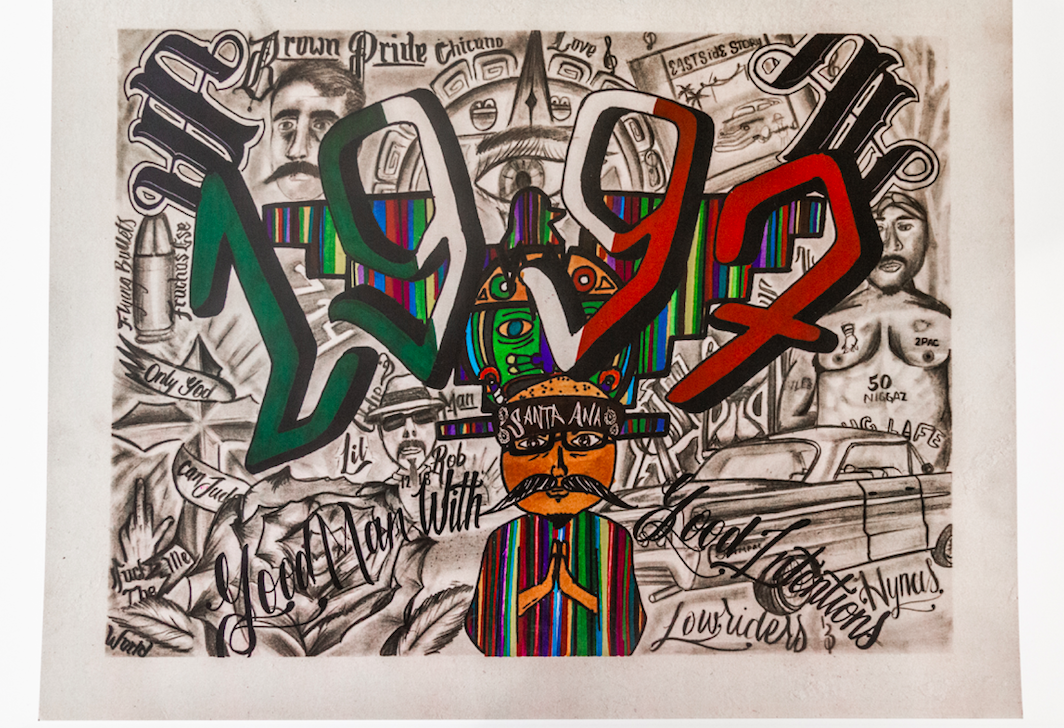“Why have you let me film this?” Josh Kriegman asks as Anthony Weiner’s 2013 campaign for mayor of New York suffers another massive setback.
It’s a fair question. When directors Kriegman and Elyse Steinberg started gathering the footage that would become Weiner, a documentary on the embattled politician that’s just out, they thought they were going to tell the story of a fiery young politician’s redemption after a very public sexting scandal nearly destroyed his marriage and career. And things were off to a great start: Weiner was leading in the polls, had an active, well-funded campaign staff, and had reconciled with his wife (Huma Abedin, protégé of Hillary Clinton).
The problem, as anybody near a television set circa 2013 will recall, is that Weiner’s post-scandal reformation hadn’t quite stuck; around the same time that he was publicly apologizing for lewd misconduct, he was sending more pictures of his schvantz to another round of women. Oops. Weiner’s chances of winning were demolished, but he stayed in the race, continuing to hold conferences and rallies as his career and marriage collapsed around him for a second time. He didn’t win.
Keeping their cameras rolling, Kriegman and Steinberg didn’t get what they expected, but they got something far more interesting: a portrait of a man in crisis in early 21st century America. They could’ve made it a horror story or a sober analysis of materials and footage, but no; our documentarians have sculpted a grand, bleak, deeply American comedy of ego and humiliation, and one of the best American documentaries in some time.
At the center of it is Weiner, he of the cursed name. There is no psychologizing here, no interviews with talking eggheads spouting off about neurochemical imbalances and stunted psychosexual development. There’s just 97 minutes of Weiner joking and cajoling and screaming among the grand ruins he has made of his life, which tells us far more about the inner life of Weiner than any Ivy Leaguer trying to sell a book. It’s the fullest portrait of a man in all his complexity that I’ve seen in years—it’s easy to dislike Weiner, but it’s hard to hate him for his candor, wit, and sense of justice. (Weiner burst onto the national scene as a congressman who threw passionate tantrums against congressional Republican obfuscation.) Less dynamic but more sympathetic is Abedin, always in the background but never out of the frame, and emotions that play across her face—shame, regret, bitterness, tenderness, exasperation, love—are a story by themselves.
Behind the camera, Kriegman and Steinberg uncanny eye for fortuitous framing and telling moments, never framing Weiner, his wife, and his subordinates alone but keeping them all in the shot, usually squirming horrendously as Weiner bloviates. As his bluster reaches fever pitch in a television interview, they cut from the broadcast to Weiner alone in the remote studio, shouting insults and justifications into a seemingly empty room; and from this bizarre image, they cut to Weiner watching that same interview the next morning, laughing at his own jokes. Abedin, looking at the man she married with horror and exasperation, isn’t in the same frame so much as trapped there.
And yet Kriegman’s camera is the most sympathetic one in the movie, far kinder than the many other lenses focused on Weiner in the movie. Weiner is as much about the man as it is about the state of American journalism, and the diagnosis is bleak: here are reporters, pundits, and comedians sharing in an orgy of titillation and moralizing.
The American media, in this hellish vision, is a self-perpetuating ecosystem where nothing goes to waste: reports and comments from the most respectable journals become mulch for tabloids while late night comedians thrill in the squabbles and humiliations while acting as if they are above it. Without even the pretense of objective disinterest, the press actively interferes in their own reporting by harassing Weiner until he snaps in front of the cameras, spurring a new round of headlines. Escalation tending to absurdity is the rule: after the New York Daily News reveals the name of Weiner’s mistress, FOX News flies her in to hear her side of the story; Howard Stern brings her on to talk about Weiner’s wiener; a porn studio helps her make a sex tape.
Journalists, meanwhile, are eager to discuss every angle of the scandal besides the impact of their own ghoulish probing. But can you blame them? His secret online handle was Carlos Danger! His name is Weiner! Sure, Weiner’s campaign staff is stalked by paparazzi and headlines denigrate Abedin’s fitness as a wife, mother, and human being, but they’re just supplying a public demand. The press is just following orders, you see, and the market demands scandal and humiliation. This machine is bigger than Weiner.
And yet. “I did do the thing,” Weiner admits to Kriegman. The vim and venom of the media circus might be unwarranted, but it’s not unreasonable to suggest that a good husband wouldn’t send other women pictures of his dick, and that a good politician wouldn’t get caught. More damning is the fact that Weiner’s initial response was to lie about it. Hiding something is always a tacit confirmation of its value. Lying was a desperate punt on Weiner’s part, but an understandable one: sex might make babies, but it unmakes politicians (the exception being Bill Clinton, who is not a politician so much as a man who happens to do nothing but politics). Even if you believe that Weiner’s private indiscretions should remain private, surely there should be consequences to abusing the public trust. But is a full-court press by the press to humiliate Weiner the right move?
Who deserves public humiliation anyway? Casting shame on strangers has become a major pastime on the internet, one fueled by a viciously codependent relationship between news media and social media. The playbook is simple: something—a stupid Tweet, a moment of weakness captured on YouTube, an unfortunate gaffe is GIFed—makes its way onto the internet; as retweets mount and things go viral, the news media comes running; amplified by the press, which by now has named names and hashtags, the retweeters get a second wind; meanwhile, the first wave turns momentary outrage into momentary activism, and a “Justice for __” hashtag surfaces; finally, somewhere between four hours and four days after the scandal breaks, the attention fades and the hashtags begin their long second lives as jokes and internet memes. Meanwhile, whoever found themselves in the midst of the maelstrom is now condemned to a name tarred and feathered by Google searches and Twitter spittle.
As a form of dispensing justice, online public shaming isn’t ideal. Let’s take the recent death of Harambe the gorilla as an example: here is a situation involving a perfect storm of unpredictable toddlers, an unforeseeable gap in zoo security, the difficulty of parenting in public, a large cohort of camera-equipped onlookers, and the essential unknowability of gorillas. To be clear, experts of every stripe agree that shooting the silverback was the worst possible decision that could be made, except for all the other ones. The consensus is clear: this is a tremendously complicated tragedy with many moving parts and no clear target to bear the blame.
The internet disagreed. Because there was a death and a gunshot, the reasoning went, a crime had been committed, and every crime has its criminal. Seeing smoke, they started a fire, and the mother of the endangered child was singled out for being negligent to the point of gorillacide. Even worse, she had the temerity to go on Facebook and gloat about it by thanking God for keeping her toddler from being crushed by a silverback gorilla. It was clear that something had to be done about this monster, and it was up to the mob to decide. By the time a court ruled that the mother had committed no crimes, a petition calling for her trial had amassed half a million signatures. Signatories were openly sharing her name and address online, and calling for her to be fired from her job. Of course there were death threats.
I know all this because the media reported it, shared it, and asked me to share my opinion in the comments section. Sure, more respectable outlets avoided stoking the hysteria, but anybody interested in stoking their outrage can find plenty of fuel under the bylines that exist in the nether-regions of reportage that exist between the establishment and social media. Livelihoods are made printing glorified factsheets in the service of justice, or at least public shaming.
How just is this justice, anyway? Internet outrage can and does highlight legitimate lapses of legal judgment—hello, George Zimmerman—but many of the victims are poorly chosen, as angry mobs are rarely patient enough to make fine distinctions. In any case, their own momentum usually impels them toward the harshest punishments, regardless of the crime. (Even movie critics get death threats these days.) And in a perfect instance of technology abetting our worst instincts, the outrage machine can make itself look just and right by sheer dint of its size and noise. Half a million signatories can’t be wrong, after all. Fortunately, the American legal system still doesn’t permit online petitions as evidence of guilt, but the court of public opinion is able to cause enough damage on its own, chasing people away from homes and livelihoods on behalf of flimsy headlines that will be tomorrow’s punchlines.
Speaking of punchlines, let’s get back to Weiner and Weiner. His wife and campaign staff, the parties most affected by Weiner’s indiscretions, are hardly pleased by the scandal, but they stand by him. It’s strangers who launch the most vociferous attacks: a concerned citizen at a campaign stop calls Weiner a pervert; an unbearably smug Lawrence O’Donnell using an entire TV interview to continue asking variations on “What is wrong with you, sir?” as though he’s Joseph Welch confronting Joe McCarthy; The New York Daily News calls on Abedin to leave her husband in a tone normally reserved for battered women. The collective animus against Weiner from people he neither knows nor sends sexts to is staggering. Behind all the wiener jokes and moralizing, the consensus is that Weiner deserves not only to lose the race, but his wife and dignity, too.
But why Weiner? Part of it is surely the nature of his crime, or rather the fact that it’s not a crime at all. This is a good thing—as a rule, adultery is only criminalized in places with catastrophic levels of sexual anxiety—but good luck convincing the tabloid crowd accustomed to calling for castration when some wispy starlet is cuckolded by her shiny boylet. Adultery isn’t illegal, but that doesn’t mean it doesn’t hurt a lot of people, and in ways that are hard to redress. Unless you’re in divorce court, cheating by itself is not a criminal offense, and the offender gets off scot-free. Surely some of the joy in following tabloid affairs lies in a sublimated desire to see the adultery punished in the court of public opinion. (If you doubt that a culture plays out its anxieties through its tabloids, the example of France is instructive: famously indifferent to infidelity, French presidents have weathered sex scandals that would undo an alderman in the United States.)
Adultery isn’t the only part of the events that are compelled to play out like a story, though. Even before his scandal breaks, Weiner’s tendency to be brash, cocky, and loud made him look like an unfolding morality tale. If his story was fiction, describing Weiner’s narcissism by showing him obsessively watching his own interviews would be too on the nose. And Weiner jumps ahead of the literary theorists in his interviews with Kriegman, wondering out loud if the same force that leads him to be a public figure also animates his philandering. Abedin, of course, is the platonic spurned woman: quiet, dignified, and torn between doing what’s best for her career, her troubled husband, and their infant son. Even before the media tried to drum up a story around the fall of Weiner, all the pieces of a great drama were there. Did the media and the public go overboard in shaming Weiner because it would make a great novel?
Not quite, but we’re getting closer. Good stories, real or fictional, appeal to our sense of fairness and just desserts. And as far as headlines go, divisive politician gets caught cheating twice, still wins race and stays married isn’t much fun. The lack of consequence violates our sense of propriety. And while it’s said that we live in a cynical age, isn’t it true that our most popular movies are about flying men in tights defeating the forces of evil? And hey, isn’t justice a matter of aligning the world as it is and the world as it should be? The logic is perverse, but you can’t say it isn’t sound: the story of Anthony Weiner became a good story because we wanted a good story. There’s no other way to explain so many people openly wishing for this to happen, delighting in watching Weiner self-destruct and alienate his supporters. It’s justice, all right, played out across the great literary characters of our time: celebrities. For many, the trials of the rich and famous satisfy a need that used to be occupied by mythology; what could be more human than giving our mundane moral values cosmic weight by playing them out among the stars?
If you’re thinking about the awful weight of this drive for justice and its effect on making the news, you’ve come to the right paragraph. For the folks tasked with reporting events and crafting coherent stories out of them, making sure that stock narrative tropes aren’t driving the reality is a serious responsibility. Many of the journalists covering Anthony Weiner’s mayoral run in 2013 failed in this obligation, and quite a few did it deliberately. Nowhere is this more apparent near the end of Weiner, where media-engineering and the drive for retributive spectacle collide in a climax might be the most hilarious, absurd, and harrowing portrait of American politics to come out of this decade: Weiner literally running and hiding from his mistakes and a vengeful camera crew on election night, taking refuge in a restaurant where the televisions are loudly declaring that his lifelong dream of being mayor has been shot down by 95 percent of voters. I couldn’t keep watching. I couldn’t look away.
The humiliation of Anthony Weiner might not be just, but it certainly speaks to the failures of our media, our politics, our stories. Kriegman and Steinberg, at least, are stilling making compelling and original stories out of that flimsy stuff called reality.
‘Weiner’ a meditation on public shaming
Clayton Davis
June 15, 2016
0
More to Discover













